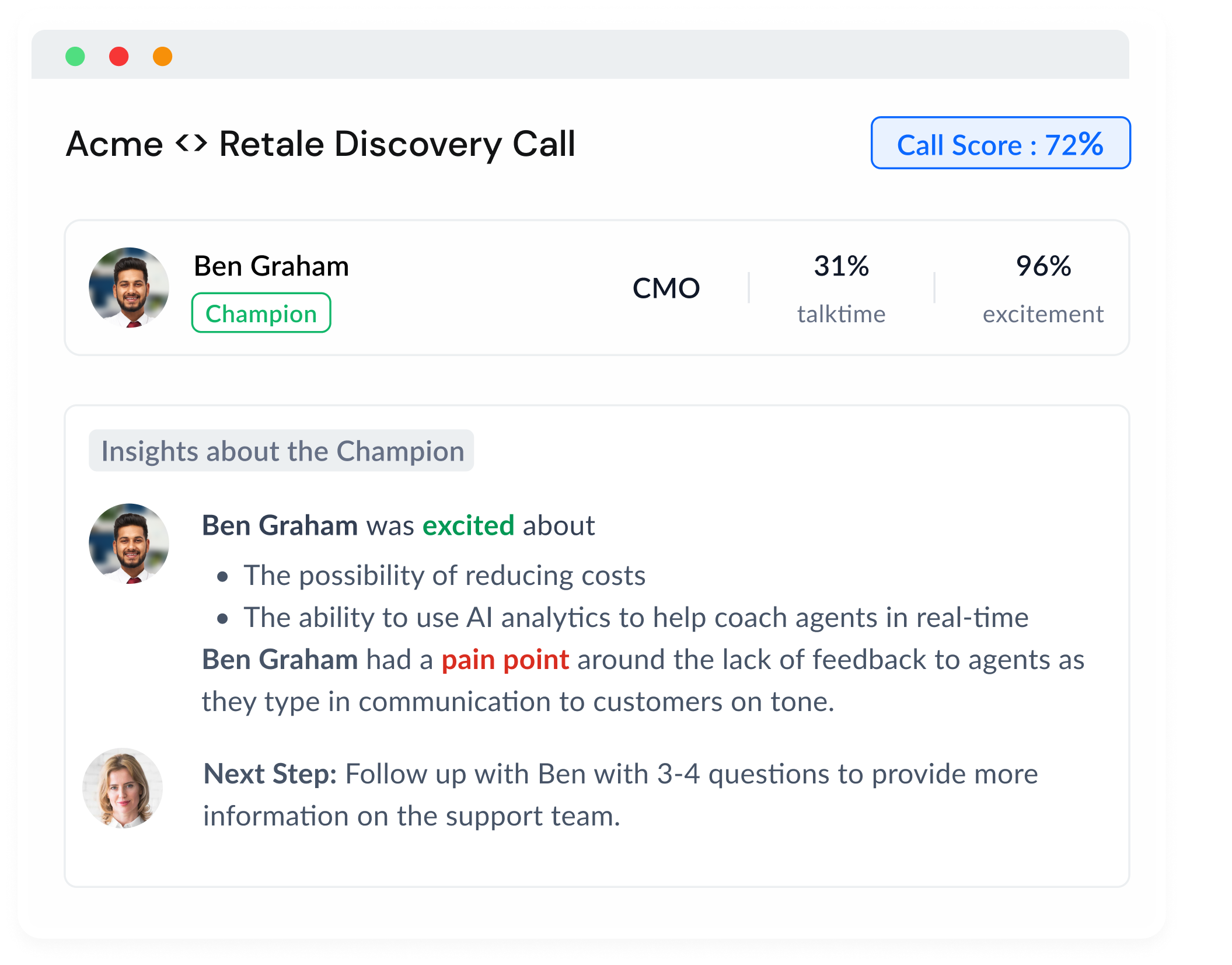Sales is more than just numbers, and you know it. Beyond the quotas and targets, it’s about understanding people. It’s about building trust, discerning needs, and forging genuine connections. At the core of these interactions is Emotional Intelligence (EQ).
What is EQ and Why Should Salespeople Care?
Emotional Intelligence isn't just about recognizing your own feelings but also understanding the emotions of others. It's the ability to pick up on small hints in a sales chat, understanding both what's said and what's left unsaid.
EQ comprises five key components:
- Self-awareness: Recognizing your own emotions and understanding their impact.
- Self-regulation: Managing disruptive emotions and adapting to changing situations.
- Motivation: Being driven to achieve, not just from external factors like money, but also from internal passions.
- Empathy: Understanding and sharing the feelings of another.
- Social skills: Building rapport and fostering relationships.
These aren't just soft skills; they're essential, and they can set you apart in a saturated market. Don't just take our word for it—research echoes the rising significance of EQ.
- McKinsey notes that by 2030, the demand for emotional skills will grow across all industries by 26% in the USA.
- The World Economic Forum considers emotional quotient (EQ) as one of the top ten vital skills the modern workforce needs to have.
Additionally, embracing EQ in sales doesn’t just build better relationships; it translates to real dollars and cents. In the French pharma company Sanofi, a group trained in EQ did 12% better than another group. The company saw a return of $6 for every dollar spent on EQ training. Even L'Oreal’s EQ-trained sales agents outpaced their colleagues, selling over $90,000 more.
Which particular EQ skills should a sales team focus on?
In the ever-evolving landscape of sales, certain EQ components play a more dominant role than others.
Dave Lennick, the Executive VP of American Express Financial Advisers, noted, "Only through managing our emotions can we access our intellect and our technical competence. An emotionally competent person performs better." Let’s now see which skills are critical for sales professionals.
Skill 1 - Build empathy
Understanding a customer's pain point is sales 101. Yet, fully immersing yourself in their journey to address this concern can transform the way you offer your product or service.
Empathy building involves understanding how they currently solve this pain, who is responsible for solving it, and how much are they willing to pay for it. Understanding the organizational hierarchy, buying processes, and goals for the quarter all play into it.
When you look at the world through your buyer's eyes, you can craft better deals for both of you. At the most micro-level, understanding their verbal and non-verbal communication on each sales call plays a critical role in building empathy.
Skill 2 - Be self-aware
On a particularly challenging day, you may not be as patient during the onslaught of questions as part of a demo call. The customer will mirror this, so it can lead to an aggressive conversation. Replace frustration with boredom, and your prospect will be yawning in no time. Manage lingering emotions during sales discussions, focusing on positivity, eagerness, or any mood needed to nail the conversation.
Skill 3 - Act on Feedback
The first instinct will be to react, which can be disorienting. But, reflection before the reaction is a sign of high emotional intelligence. Espousing this skill as a sales representative will make you a resourceful part of your team and the sales process.
Go through a recent sales recording, and check how your mood and vibe translate into your speech and gestures during the call. Then, use that as feedback and act on it.
How can I improve my sales team's EQ?
Emotional intelligence coaching is a key aspect of sales coaching, especially as your salespeople are the ones developing your company's first impression with your customers. Enhancing emotional intelligence in sales isn't an overnight task—it's a journey of understanding, adapting, and growing.
Teach your sales team how to get into the customer's shoes, minds, and hearts
Consider not only immediate benefits but also potential long-term issues that might emerge while addressing a customer's concern. Identifying these issues and crafting a customer-centric narrative can guarantee two outcomes:
- It makes the customer feel that you are here to help them solve their issues rather than push your products;
- It gives them a chance to be involved in the sales call rather than just be at the receiving end of statistics, quotes, and testimonials.

Conduct EQ training that prioritizes visual and non-verbal cues
Your sales team must learn to read between the lines when pitching a product. Is the prospect looking to cut off the conversation ASAP, and is it better to redirect or just move on? Nonverbal signals will often give you more insight than verbal communication, whether it's a virtual call or physical interaction.
When you talk to someone, you choose your words. But what about your hand movements, eye contact, or facial expressions? Being mindful of how you appear - whether open or reserved, bold or shy, confident or unsure - matters in sales and sealing deals.
Do they want more facts or reassurance? A skilled sales team with high emotional intelligence picks up on these signs to adjust their approach.
Sales is all about getting people. Using technology that spots emotional hints during a sales chat helps create a more effective sales plan.
Give your sales team autonomy and let their natural EQ guide them
According to Gartner, it takes around 18 rounds of interaction to connect with a customer. Allow your sales team to have control over this lifecycle of interaction. They may mess up, but that's where sales review notes come in, where they can identify if something went wrong.
Giving them this autonomy will further enhance emotional intelligence. Use 1:1 coaching sessions to help them identify areas of improvement and assess their strengths and weaknesses, especially in observing human emotions rather than sticking to the script during a call.
Armor your sales team with Sybill
Now, you no longer need to take full responsibility for EQ training yourself. AI tools like Sybill can help your sales team with the emotional intelligence training and feedback that they need to nurture their prospects. By analyzing both verbal and non-verbal cues from prospects during sales interactions, Sybill offers actionable insights for your team, empowering them to become top performers.
Help your team channel their EQ to bond with each prospect with empathy, self-awareness, and positive feedback mechanisms.
Closing Thoughts
Emotional intelligence can make or break your sales org. Salespeople with high EQ consistently outperform those without, and this becomes even more important in a remote-first world as most sales happen online. The less in-person time makes those with strong EQ on virtual media even more valuable.
You can train yourself and your sales team to get better at emotional intelligence. It takes time but is a highly coachable trait. Investments in developing the emotional intelligence of individuals pay off not just in sales, but also in maintaining inner harmony and teamwork.
Follow the tips in this post, and more detailed posts on the specific tips themselves, to set your sales team on the right path.
Towards a high emotional quotient, and higher quota attainment!















.png)





